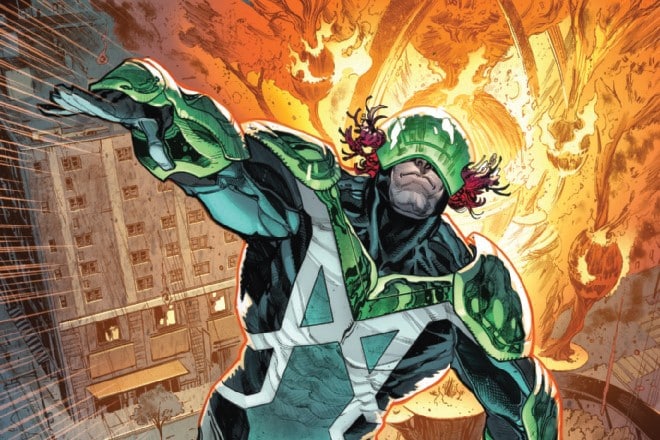The first time I had sex, I wasn’t worried about pregnancy or STDs or anything like that. I was worried for my immortal soul. Thirteen years of Christian school, camps, youth groups and revivals had made one thing clear: what I was doing was wrong and worthy of eternal damnation in a lake of fire. The guilt that followed every carnal act sat with me long after the pleasure had come and gone. Most of my life was spent building a fake reality, one that takes time to dismantle.
Jessica Campbell’s Rave transports readers into the world of the early 2000s church, enrapturing us with the battle between the black and white being preached from the pulpit and the messy world those youth group kids live in outside of Wednesday evening and Sunday morning. It’s a matter of fact telling of a classic coming of age story, but oozing with a lived experience that’s hard to ignore, especially when faced with the memories you’ve been repressing for decades.
Campbell presents the story plainly. Structured, six panel grids with plenty of negative space between them dominate the pages. The layout leads to the familiar shape of the cross sitting centered in every moment. It’s a reminder for us and Lauren, Campbell’s meek protagonist, that God sent his son to be tortured and killed as a the fulfillment of all the sacrifices of the Old Covenant, atoning us of every wrong doing. A man died to save you from the Hell you deserve for your pre-marital sex, and your liberalism, and your naughty thoughts about other girls, and your cigarettes and your belief in the false doctrine of evolution, and you better not forget it. Campbell’s pages won’t let you.

The cartooning is plain. Simple figures and thick lines evoke the doodles your artsy friend would make in the margins of their American History notebook. There’s a universal appeal to the character acting, a strong example of what Scott McCloud would describe as a work evoking “Language” more than “Reality”. Campbell’s characters don’t look real, but they feel real. The comic creates a bubble for you to live in, one where Lauren spends her days toiling in the unreality of the church before ultimately breaking free as she burns a cig staring out over a heavily etched reality.
Rave speaks to the reality that good Christan girls deal with on the daily. Their bodies are changing and they must cover them lest they cause their brothers in Christ to stumble into an impure thought birthed from a spaghetti strap or an extra centimeter of thigh. They must remain pure bridegrooms of Christ, pristine and unspoiled, dedicated already to a husband they have never met. The opening scene shows the Pastor’s teenage daughter, many months pregnant and called in front of the congregation to spout some platitudes about God’s love never failing while her earthly father degrades her as an object lesson about sexual imortality. As one of Campbell’s ministers preaches “Your body is not your own. You are here on borrowed time from God.”

In Matthew 7:3 (NIV) Jesus says “Why do you look at the speck of sawdust in your brother’s eye and pay no attention to the plank in your own eye?” The red letters of Scripture push against the doctrine of judgment, but Rave shines a light on the reality of that world. Lauren’s church revolves around judging others, gossiping about their trespasses and raging against those who trespass against them. No matter what they claim, there’s no loving the sinner, just hating the sin. And Lauren, like most of those who were raised up in the church, doesn’t escape without bringing that with her. She projects the guilt she feels for her sexual orientation with cutting comments to other women and the self sabotage of her own love. There’s no clean, happy ending here, just the bitter truth that in reality, sometimes a neat resolution never happens.
Rave opens with a quote from Pastor Pat Robertson showing plainly the constructed reality the Christian church has lived in since the days of the “Moral Majority”. He says “The feminist agenda is not about equal rights for women. It is about a socialist, anti-family political movement that encourages women to leave their husbands, kill their children, practice witchcraft, destroy capitalism and become lesbians.” What Jessica Campbell understands is that a terrifying, blatantly untrue and patently hateful statement like that can feel normal, even tame in the church. So many “good people” would sit there, nodding their heads in agreement against their best interest with words like this. When someone asks me why I don’t go to church anymore, it’s because stories like Rave are all too real.
Zachary Jenkins co-hosts the podcast Battle of the Atom and is the former editor-in-chief of ComicsXF. Shocking everyone, he has a full and vibrant life outside all this.






